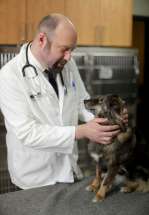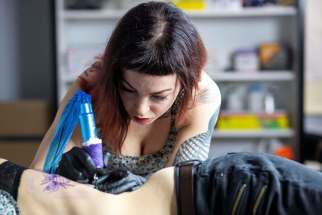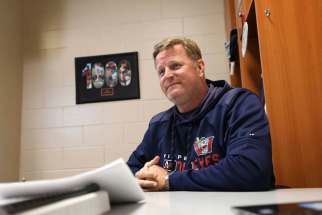Extraordinary, this dear Watson Winnipeg doctor lauded on global stage for vision, commitment, exhaustive efforts to heal the world four legs -- plus two legs -- at a time
Read this article for free:
or
Already have an account? Log in here »
To continue reading, please subscribe:
Monthly Digital Subscription
$1 per week for 24 weeks*
- Enjoy unlimited reading on winnipegfreepress.com
- Read the E-Edition, our digital replica newspaper
- Access News Break, our award-winning app
- Play interactive puzzles
*Billed as $4 plus GST every four weeks. Offer only available to new and qualified returning subscribers. Cancel any time.
Read unlimited articles for free today:
or
Already have an account? Log in here »
Hey there, time traveller!
This article was published 03/05/2019 (2161 days ago), so information in it may no longer be current.
At the clinic, Jonas Watson reaches down to ruffle the furry ears of his last patient, explains a few medications, removes his lab coat and heads out into the late-afternoon light. It was a typical sort of day at Tuxedo Animal Hospital, other than the camera crew that followed him into the surgery room to catch a glimpse of his working life.
There is a lot on his mind. In a few days, he will catch a flight to Central America, where he will stand on a stage and be honoured by some of the top global minds in his profession. So he has been thinking about what he wants to say, and as he settles into a chair at a coffee shop near the clinic, he seems a man on a mission.
Or maybe, to put it simply, he’s just a veterinarian with a vision.
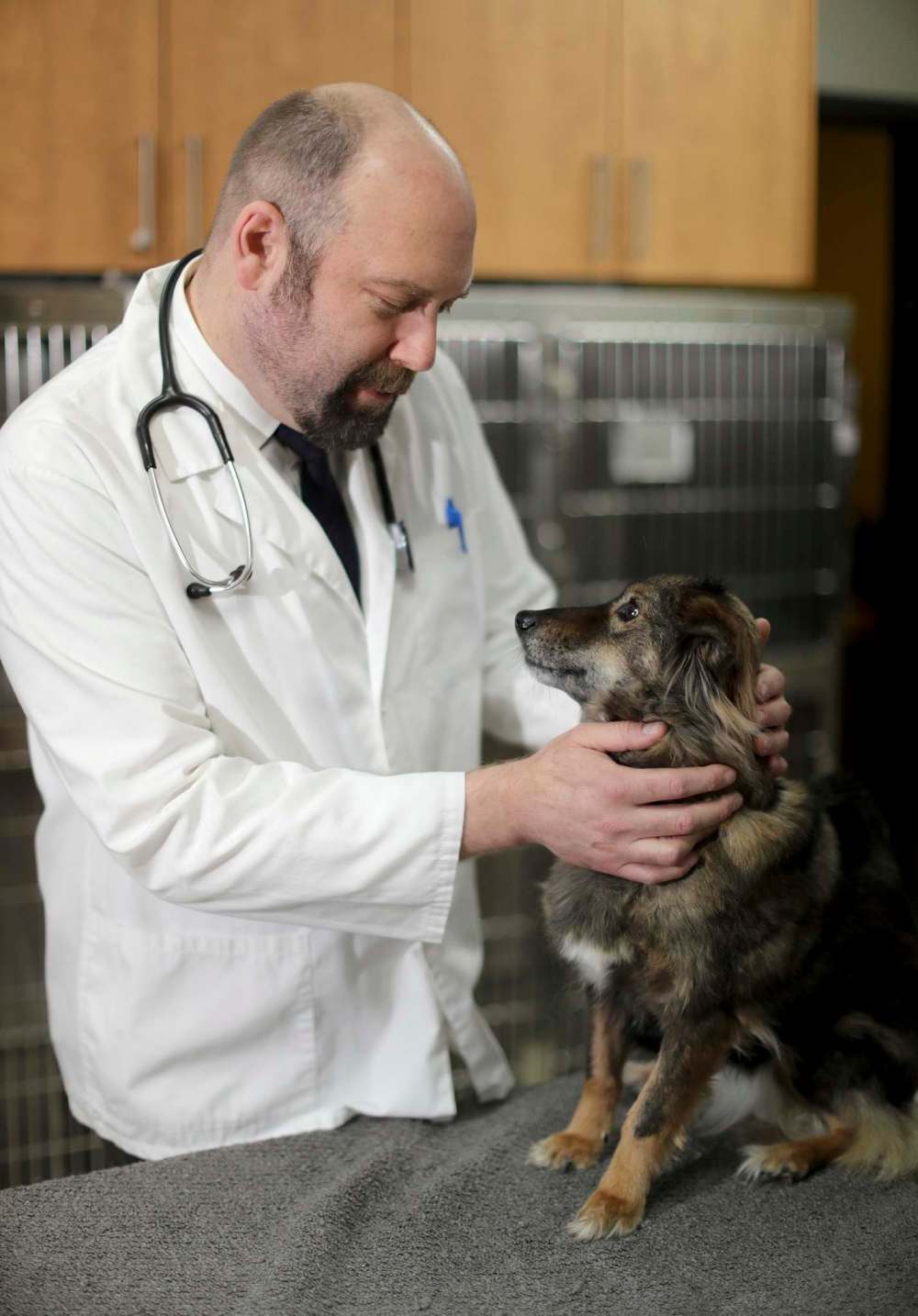
“My ambition, over the course of my career, has been to aspire towards universal access to veterinary care,” Watson says. “That’s what we should all be trying to work towards. It’s easy for cynics to say, ‘Well, if you can’t afford a pet, you shouldn’t have one.’ Easy to say, but it’s not at all reflective of how things work in the world in which we live.”
That’s a lofty goal, he agrees, with a knowing chuckle. As president of the Manitoba Veterinary Medical Association, he understands the barriers. It costs a lot to operate a veterinary clinic. It costs a lot to get medical care of any kind to the people and places that most need it. But oh, imagine if you could find a way to reach everyone?
“I’m not expecting to achieve it by the end of my career,” he says. “But it’s certainly gratifying to work towards it.”
Now, the global veterinary profession has taken notice. On April 29, at the World Veterinary Association Congress in Costa Rica, Watson was honoured with the WVA’s Animal Welfare Award, one of six vets and one student to be so honoured; in the three-year history of the award, he is the second Canadian to win.
The prize, for which his name was put forth by the Canadian Veterinary Medical Association, recognizes, in part, Watson’s larger vision. For years, he has helped spearhead a series of mobile pet clinics that reach some of the remote parts of Manitoba and underserved populations right here in the city.
In collaboration with non-profit animal rescues, such as Save a Dog Network Canada, he has travelled to fly-in First Nations such as York Factory and Red Sucker Lake. He has set up temporary shop in Churchill, where the crew jokingly dubbed the mobile clinic “Tuxedo at the Treeline.”
‘My ambition, over the course of my career, has been to aspire towards universal access to veterinary care’
In the early days, he made the trips north as the lone veterinarian, hauling saline and gauze and surgical tools on cigar-box planes. The travelling clinics can be exhausting, a non-stop grind of snips and incisions, injections and treatments; Watson’s all-time record was 60 dogs spayed and neutered in one deliriously long day.
“There may have been a couple 5-Hour Energy drinks consumed in the course of that day,” he says with his customary dry humour. “I’m not sure I even have it in me to try and beat that record.”
Sometimes, this mission takes him even farther afield. In 2015, Watson joined a group of vets and technicians that flew to Madagascar, where wildlife biologists were worried about how domesticated animals were affecting highly endangered wildlife; on that trip, they neutered dogs and cats under tents and in rickety wooden shacks.
Come back home to your high-tech, “Mayo Clinic-style” urban animal hospital after that, he jokes, and you realize how spoiled you are. But it was eye-opening to see how you can adapt, with the right know-how and basic tools.
“It is very rewarding to see what you can actually do with very few resources,” he says. “You can accomplish a lot. The conditions may not be perfect, but you don’t actually need perfect conditions to make meaningful change in situations where veterinary care may be lacking.”
‘It is very rewarding to see what you can actually do with very few resources. You can accomplish a lot. The conditions may not be perfect, but you don’t actually need perfect conditions to make meaningful change in situations where veterinary care may be lacking’
That includes right here at home, where Watson has also helped grow the innovative One Health Clinic series. The concept, which originated in Ontario, aims to connect vulnerable people to medicine for both themselves and their pets; a way of getting past barriers to health care, whether patients arrive on two legs or four.
“The human-animal bond is very strong, and is as alive and well as it’s ever been,” he says. “There’s not as much educating we have to do around why it’s important to get veterinary care. It’s more the case that there are large populations that just don’t have access to it, but wish they did.”
In May 2017, a team hosted the first One Health Clinic at Resource Assistance for Youth in West Broadway; 17 vulnerable youths came out, along with 23 pets. For the furry or scaly patients, there were medical exams and vaccinations; the humans received dental checkups and help connecting to other health services.
The formula was a hit. Organizers have since held several more, including at the Indigenous Family Centre on Selkirk Avenue. What Watson sees in those clinics is humbling: to many housing-insecure people, he says, pets are a “lifeline, their entire reason for existence.” They often put their pets’ well-being before their own.
But they struggle to access veterinary care, and that’s where Watson’s broader vision — that dream of universal access — grew clearer. Because it’s not only about pets and their well-being; it’s also about understanding our fundamental relationship with animals as one of shared fates, and deeply woven interdependence.
“Animal welfare and human wellness are so intimately linked, in so many ways, that by ensuring the well-being of our patients, we are also helping the people who love and depend on them,” he says. “So this notion of one welfare really resonates with me, and really supports the elevation of veterinary medicine as a vital social service.
‘Animal welfare and human wellness are so intimately linked, in so many ways, that by ensuring the well-being of our patients, we are also helping the people who love and depend on them’
“We need animals just as much, and probably more, than they need us.”
With that in mind, Watson says, he sees animal welfare as being one of the biggest emerging social justice issues of the 21st century. There’s no doubt that awareness has been evolving; people are far more sensitive now to how animals live and thrive than they were even in very recent decades, he notes.
Still, there is a long way to go. And maybe it starts with just finding ways to honour and tend to the human-animal bond, in every place that it flourishes. Wherever humans are, they are, too. What happens to them affects us, too.
“In the same way we are stewards of the planet, we are stewards of the animals that live at our mercy, regardless of species,” he says.
“And we’ve made some mistakes in the past, in terms of how we treat them, and there are still corrections yet to be made. But veterinarians are at the forefront of helping to make those changes.
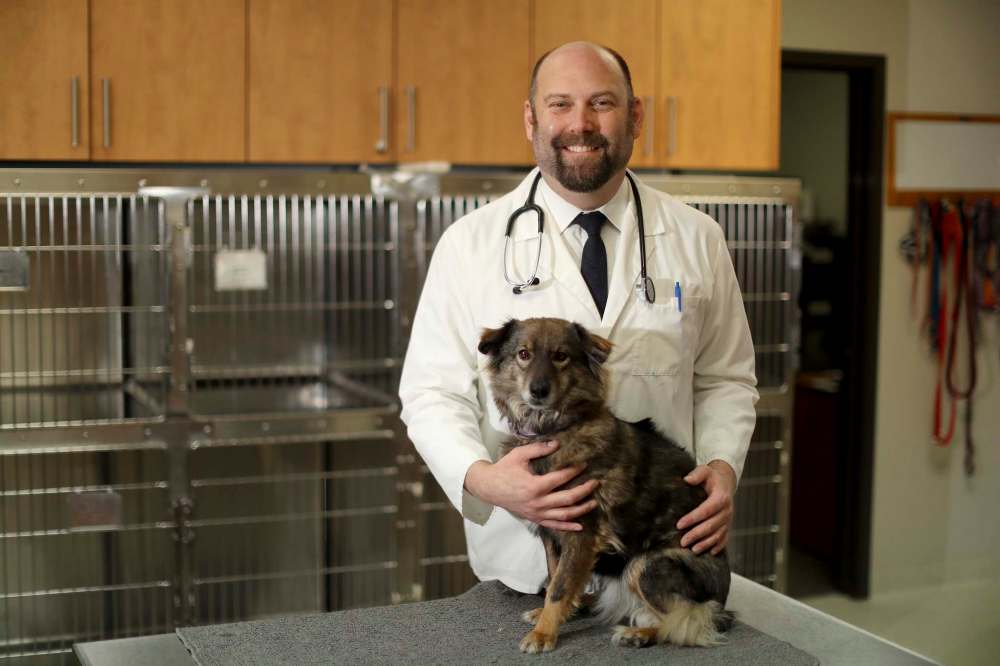
“Hopefully an award like this one can serve as a way to highlight that important work. If we can raise awareness about this, that’s as useful a thing as the World Veterinary Association can do.”
melissa.martin@freepress.mb.ca

Melissa Martin
Reporter-at-large
Melissa Martin reports and opines for the Winnipeg Free Press.
Our newsroom depends on a growing audience of readers to power our journalism. If you are not a paid reader, please consider becoming a subscriber.
Our newsroom depends on its audience of readers to power our journalism. Thank you for your support.




